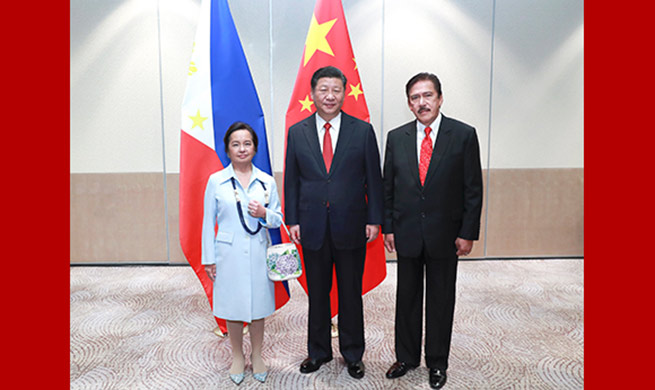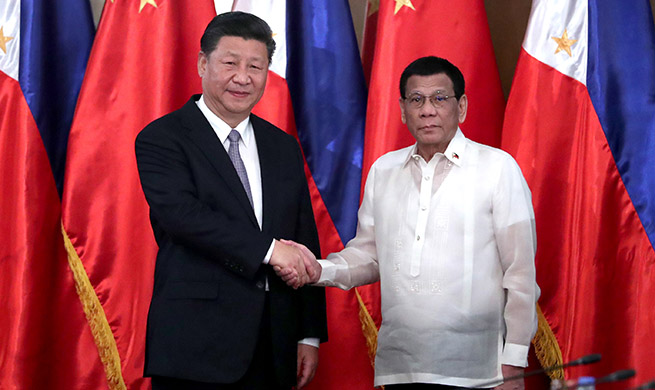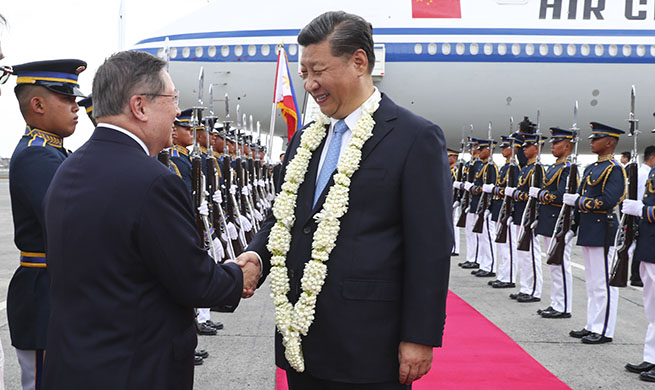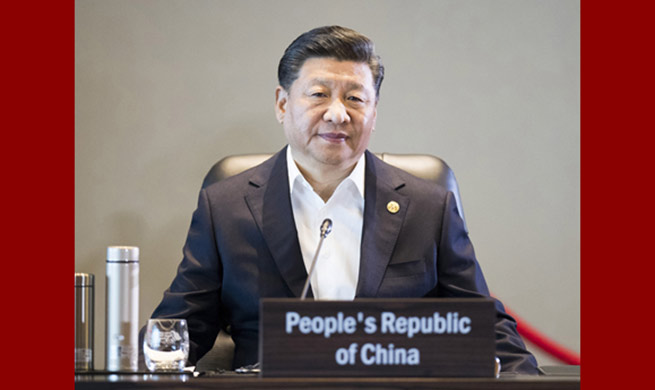BERLIN, Nov. 21 (Xinhua) -- German Chancellor Angela Merkel made an impassioned defense of her government's controversial support for a new United Nations (UN) migration compact on Wednesday.
Speaking during a general debate in the federal parliament (Bundestag), Merkel said that the recently presented final draft for the UN compact would help to find multilateral solutions to global issues. The veteran stateswoman argued that the compact was in Germany's "national interest" as well because it could improve migratory conditions across the world.
While the governing "grand coalition" in Berlin is supportive of the pact, the document has been attacked for allegedly reflecting the agenda of "leftist dreamers and globalist elites" by the Alternative for Germany (AfD) leader Alexander Gauland. Health Minister Jens Spahn, one of the candidates to succeed Merkel as Christian Democratic Union (CDU) leader in December, is also among the critics of the pact and has recently called on his own party to reopen discussions on the subject.
The compact is scheduled to be passed formally at a special UN summit in Morocco in mid-December. According to the UN, its key four objectives are to ease the pressure on host countries, enhance refugee self-reliance, expand access to third-country solutions, and support conditions in countries of origin for return in safety and dignity.
Although the compact largely builds on existing international law, a handful of countries, including the United States, Austria, Hungary and Australia, have already announced that they would refuse to add their signatures. Representatives from these states have cited concerns that doing so could limit their national sovereignty and complained that the pact failed to distinguish between regular migrants and refugees.
The German chancellor emphasized during her speech on Thursday, however, that the compact was not legally binding and had no bearing on national laws. Because the document is technically speaking just a declaration of intent, Germany's federal government does not require parliamentary approval for its support thereof.
Merkel said that the events of the 2015 refugee crisis had shown the importance of countries working together to solve issues of migration in an "international context", rather than attempting to do so alone. "German interest always also means thinking about others," she added.













